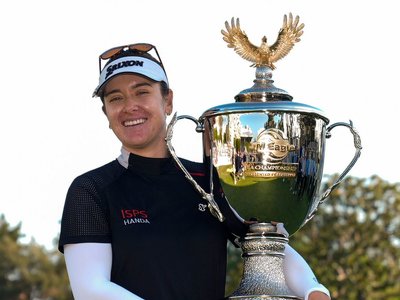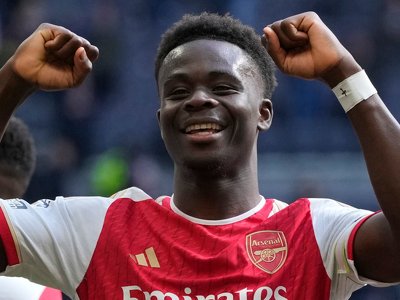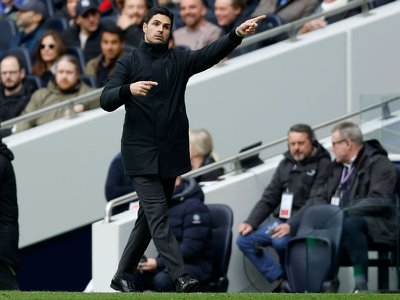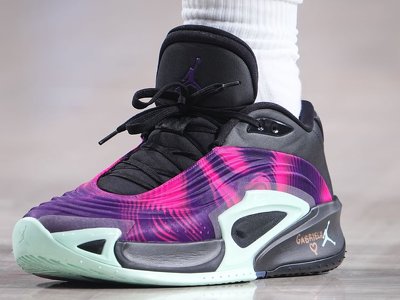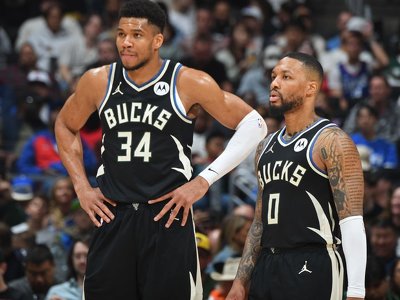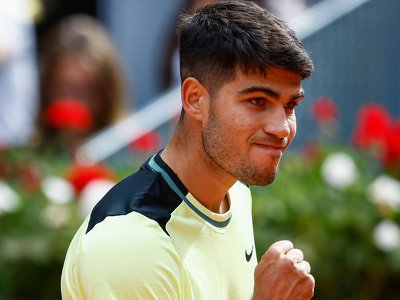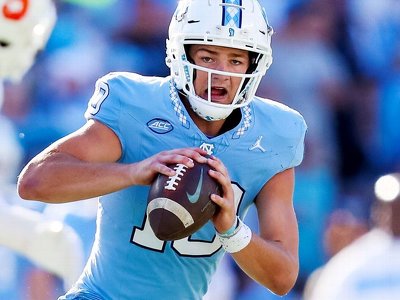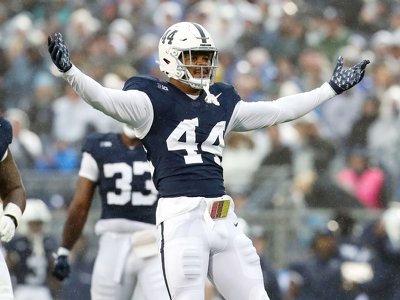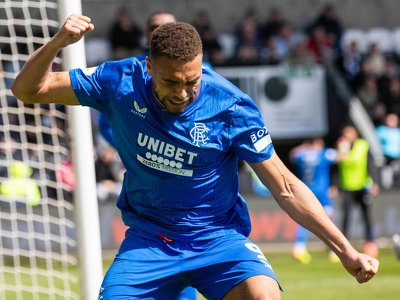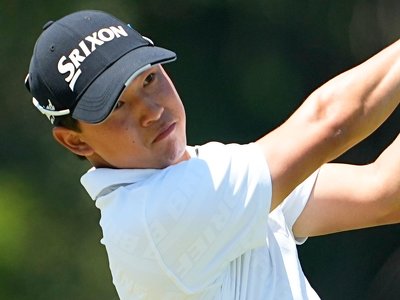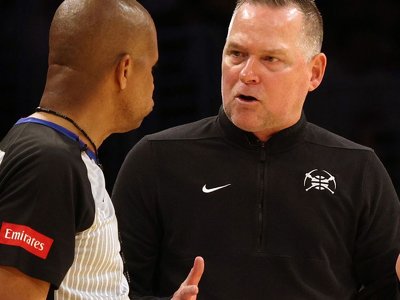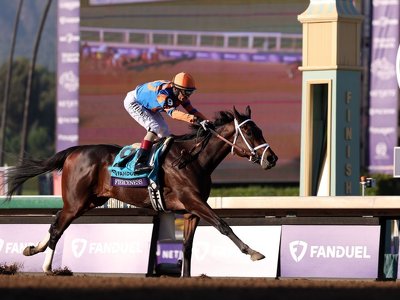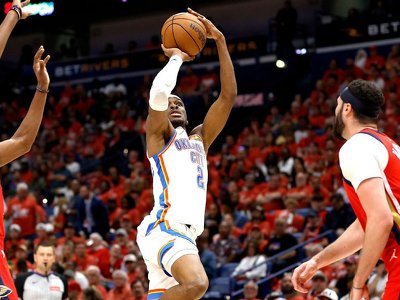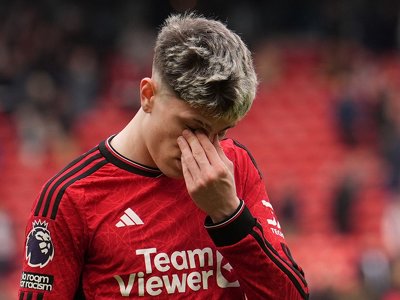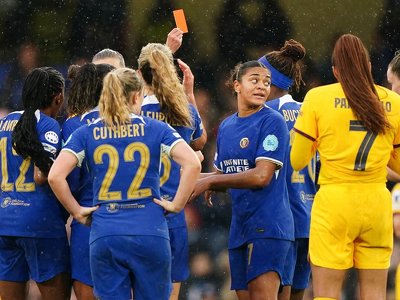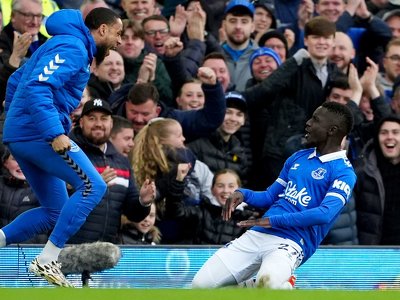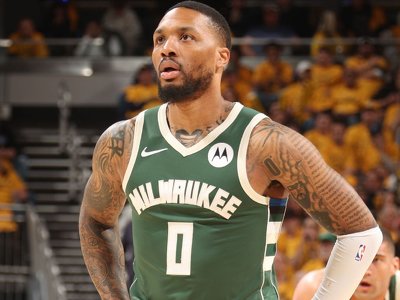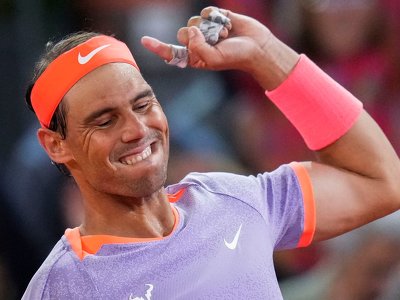Dominique Malonga could save the Storm

DOMINIQUE MALONGA SETTLES her 6-foot-6 frame into a chair in a Brooklyn hotel on a hot July 4 evening. The Seattle Storm rookie is fresh off a practice at Barclays Center after arriving in New York from Atlanta that afternoon.
It's a moment of calm. The 19-year-old, who played four seasons of professional basketball in Europe, became the youngest player ever drafted by the Storm when they chose her with the No. 2 pick in April. Her height and agility drew comparisons to French countryman Victor Wembanyama. She moved 5,000 miles from Nanterre to Seattle in May. She dunked in her first practice. Praise poured in.
"She's a unicorn. One of one," Storm coach Noelle Quinn said. "She's going to be a star," teammate Gabby Williams said. There was consensus among the Storm: Just you wait.
But Dominique Malonga was sent to the bench. And mostly stayed there. Through her first 18 games, she averaged 4.4 points and 2.3 rebounds in 9.1 minutes. The night before, she went scoreless against the Dream as Nneka Ogwumike and Ezi Magbegor hoarded the minutes in the paint.
"It's frustrating, for sure," Malonga tells me.
Emotion acknowledged, she moves on. She refuses to linger in the gloom. "Never have this negative faith or negative mood that can affect the team or the bench," she says. "That's not what I want to bring."
She tells me how she claps from the sideline and zeroes in on Ogwumike and Magbegor. How can she do what they're doing better?
"I want to breathe that energy," she says.
She yearns to turn the expectations into something concrete. She's watching film. She's learning the intricacies of American basketball. She's training harder than ever.
"I'm not a dreamer," she says. "I'm a realist."
As the WNBA season turned to its second act, Malonga delivered with a flurry of head-turning performances. She became the youngest player in league history with 100 field goals. The youngest player to record a double-double. Youngest player to score 300 points. Youngest player to post back-to-back 20-point and 10-rebound games.
But even as Malonga's milestones mounted, the Storm struggled down the stretch. With their playoff hopes in jeopardy, it was Malonga who jumped in from the bench and lifted the team with her size, smarts, speed and energy.
In the 20 regular-season games she played after the All-Star break, she had a team-high four double-doubles. She averaged 11.4 points, a team-best 6.7 rebounds and 1.3 blocks in 20.3 minutes per game. She shot 57.6% from the field, which ranked top 10 in the league. "I love playing with her," point guard Skylar Diggins says. "I'm glad to see her thrive."
Two months ago, it would have been impossible to predict that Seattle's playoff hopes would land on the shoulders of a 19-year-old rookie who struggled to find her way in the grocery store, let alone on the basketball court. But one thing became clear during the regular season's final weeks.
The Storm need Malonga to keep their title hopes alive. Never has that been more true than today. After getting blown out by the Aces in Game 1 of their best-of-three first-round playoff series in Las Vegas, Seattle needs a win on Tuesday at home or its season is over. Malonga scored 12 points and had 11 rebounds on Sunday night, but she struggled with the Aces' pace and physicality. The Storm need Malonga now. They need the promise of the past decade to come to pass.
Outside Malonga's Brooklyn hotel room, the fireworks are about to begin.
MALONGA STANDS UP from her chair, a soft smile on her face. The crowd at The Shed at Hudson Yards -- an arts center in the heart of New York City where the 2025 WNBA draft is being held -- erupts into applause and the cameras zoom in on her.
Malonga feels a strange calmness. Like there is no question that she is supposed to be here: the youngest top-two draft pick in WNBA history.
Her black Louis Vuitton suit is perfectly tailored and her large Sabine Be glasses -- transparent and chunky -- glint under the auditorium's bright lights. Her table is packed with family members -- her father and older sister to her right, her younger brothers to her left. But she looks to the back of the auditorium, where her mother sits, and walks over to her. Agathe beams as Dominique, without uttering a word, wraps her arms around her.
"Je suis fier de toi," Agathe whispers in Dominique's right ear. I am proud of you.
Dominique walks back to the table and daps up her brothers and hugs her sister before enveloping her dad in a tight hug.
Propped up on the table are the flags of three countries: Congo, Cameroon and France.
She made sure her family brought all three flags to one of the most important nights of her career in a country where she hopes she will dazzle.
She walks up to the stage and receives a Seattle Storm jersey from WNBA commissioner Cathy Engelbert.
"I come from a long journey," she tells ESPN's Holly Rowe in a TV interview. "My family is here and they are witnesses to the work I've put in to be here today.
"I am happy to be representing France, but also Cameroon and Congo. I am a multicultural person. I have a lot of people behind me, and I am so proud to be here representing all of them."
Her sister, Talancia, looks at their father and they share a smile. Goose bumps form on Talancia's arms.
"We tend to forget, there is so much diamond in the rough in the motherland," Talancia says.
THE STORM TAKE the court for pregame warmups ahead of their 2025 season opener in Phoenix. The stands are mostly empty. From the arc, Malonga dribbles once, steps with her right, then with her left. She raises her right arm above her head and throws down a dunk.
She goes to the bench. Coach Quinn sends her into the game midway through the first quarter. Seattle trails by five. The Storm are down 14 when she scores her first WNBA points, a layup on a Diggins assist.
She returns to the bench until 4:02 remains in the game. Seattle trails by 21. She picks up a foul with about two minutes to go. Seattle trails by 25.
The buzzer sounds on her WNBA debut.
WEARING A GRAY sweatshirt with "WNBA" printed in orange on the side, Malonga plops into a chair on the front patio of her new Seattle apartment. She places her laptop on the coffee table in front of her. She plugs in her earbuds and logs onto Zoom. It's a cloudy May morning in Seattle -- two weeks since the start of the WNBA season -- and Malonga has signed up to be a mentor for Voice in Sport, an organization focused on advancing gender equity in sports.
On her Zoom screen are 60 middle school girls from a basketball club in France. Malonga smiles and waves and the girls smile back. She's running a session on self-confidence today.
She introduces herself and tells the girls that she picked the topic because much like everybody else, she struggles with self-confidence from time to time and has had to work hard to change the narrative in her head.
Speaking in French, she launches into her life story.
"My early years were driven by one mantra: If you don't excel at what you do, don't do it."
As a young girl, Malonga was far more interested in books than baskets. She loved the process of learning and dreamed of going to college in America. Her father, Thalance, who played on the Republic of Congo's national team and became a politician and then a doctor, instilled the values of discipline and hard work in his four children. Dominique woke up at 5 a.m., made her bed, studied before school and learned from a tutor after school.
"If we don't work hard," Talancia says, "it feels weird, you know?"
Agathe, who represented Cameroon in international play as a 6-foot-3 old-school center, remembers her daughter working hard even before birth. Agathe played until she was five months pregnant, and she recalls Dominique kicking in her womb almost every time she made a basket, as if it was her way of contributing. After Agathe retired, she ran a basketball club. Sometimes, after Dominique was done studying for the night, she made her way to her mom's club, mostly to be around her as she coached other kids.
When Dominique turned 10, the family moved to France because Thalance figured that was where his kids could shine. He set up his medical practice in Nanterre, a suburb of Paris. When Dominique was 12 -- and 6-foot-1 -- Thalance and Agathe signed her up for basketball at a club in Paris called Mont Valérien. Coach Jean-Christophe N'Zambi watched her in disbelief. She was so agile and so fast. She could dribble with both hands, and dribble to the right and to the left.
"An exceptional case," N'Zambi says.
N'Zambi rejected the idea of sticking her in the paint because of her size. He saw her athleticism and skill and knew he needed to nurture it all.
N'Zambi remembers watching his team goof around one day after practice when Dominique was 13. She grabbed the ball, dribbled to the basket, lifted off with the ball in her right hand and -- with the grace of a ballerina -- dunked it into the basket.
"My talent -- it's nothing compared to Dominique's," Agathe says. "I had to work really hard to create the little opportunities I had, but Dominique's potential, her IQ, her skills ... they're immeasurable."
Former NBA player Tony Parker saw Malonga for the first time when she was 15. She was 6-foot-4 and training at the National Institute of Sport, Expertise and Performance (INSEP). Parker, president of ASVEL Féminin, a team in the French women's basketball league, introduced himself to her parents. "It's like she's playing with children," they remember him saying. He told them she was ready to turn pro and urged them to send her to ASVEL.
Malonga was torn. She dreamed of studying computer science at Harvard or MIT or Stanford. That way she could still play NCAA basketball. But Parker's offer was too good to pass up. At 15, Malonga turned pro.
She had been playing the game for five years when she started sharing a court with the best players in France. Her inexperience showed, and at first she spent most games on the be
- Last
- April, 29
-
-
- April, 28
-
-
-
-
-
-
-
-
-
-
-
-
-
-
-
-
-
News by day
16 of September 2025

